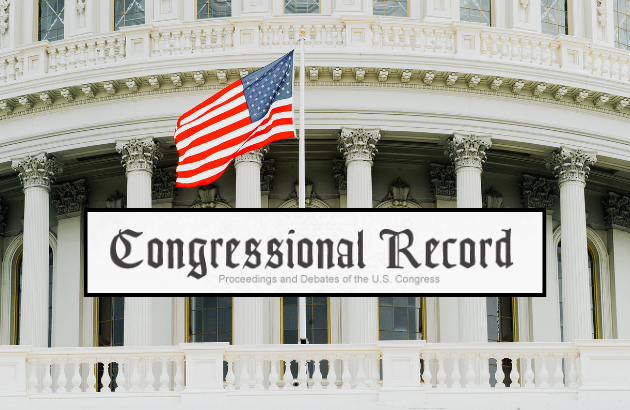Blog
You Can Bet On It: Researching The Professional and Amateur Sports Protection Act with HeinOnline
This article is republished with permission by W.S. Hein. View the original article here.
Recently, in a 6-to-3 decision, the Supreme Court ruled in Murphy v. National Collegiate Athletic Association (NCAA), which was consolidated with the New Jersey Thoroughbred Horse Men’s Association v. NCAA, to allow each of the 50 states to decide whether to permit sports betting. For the past 25 years, the Professional and Amateur Sports Protection Act (PAPSA) had limited legal sports betting to one state (plus 4 more that had been grandfathered in).
In the conclusion of the decision, Justice Samuel Alito stated that the provision of PAPSA that banned states from authorizing sports betting was unconstitutional. PAPSA prohibited 45 states from licensing, sponsoring or authorizing sports betting. It has long been argued by supporters of PAPSA that the law helped regulate criminal or unethical figures from influencing sports. However, even with the existence of PAPSA, the American Gaming Association (AGA) estimates that at least $150 billion a year is gambled on sports in the U.S. and 97% of that amount was placed illegally.
The Professional and Amateur Sports and Protection Act (PAPSA) was signed into law by President George H.W. Bush in 1992 and went into effect in 1993. Since sports betting was already illegal, PAPSA didn’t outlaw this, rather, it banned states from regulating sports betting. At the time, Nevada was the only state that had widespread state-sponsored sports bettors. The law also allowed New Jersey to legalize sports gambling in Atlantic City, but, only within a one-year window. New Jersey did not act within that time period, but lawmakers changed their mind and authorized sports gambling in 2012.
The Future of Sports Betting
Now that PAPSA has been struck down, states have the ability to establish their own regulated sports betting, and it is expected that many states will quickly establish their own regulations. According to the American Gaming Association (AGA), 17 states including West Virginia have passed bills or have bills making their way through state legislatures to legalize sports betting after PAPSA’s repeal.
U.S. Federal Legislative History Library
HeinOnline’s U.S. Federal Legislative History Library includes comprehensive federal legislative histories published by the U.S. GPO and private publishers, as well as a unique finding aid based on the award-winning work, Sources of Compiled Legislative Histories. Researchers should begin their U.S. federal legislative history research with this finding aid, which often includes references to law review articles relevant to a particular legislative history.
To locate the legislative history for the Professional and Amateur Sports Protection Act, from the database homepage search “Professional and Amateur Sports Protection Act” in the search box located at the top of the screen.

Choose the first result to view the legislative history. The Public Law Number for this particular act is P.L. 102-559.

Another way to locate this legislative history is to use its public law number. Select Public Law Number next to Browse By on the database homepage.

From the Congress Number options, select 102 and then navigate to P.L. 102-559.


To locate articles that relate to this legislative history search for Pub. L. No. 102-559 in our Law Journal Library.

From your results, choose Sort By Number of Times Accessed (Past 12 months) to view the most accessed material in HeinOnline.

To further our research, search for P.L. 102-559 OR Professional and Amateur Sports Protection Act from the HeinOnline Welcome Page. For searching help, including Boolean Operators, use the Search Help tool located under the full text search bar.

From the results, use Refine Your Search and select Date and choose 2016 to Date to view the most recent material related to this public law.

Subject Compilations of State Laws
HeinOnline’s Subject Compilations of State Laws features a database which gives you access to more than 26,000 bibliographic records from Cheryl Nyberg’s Subject Compilations Bibliography Series. Many records contain extensive annotations with links directly to articles and other documents residing in HeinOnline. In addition to a searchable database, HeinOnline also includes the exact replicas of the original bound volumes.
From the database homepage, select Browse the Subjects.

Navigate to S and select Sports Betting.

Perform a keyword search for Sports Betting in Subject Compilations of State Laws for more results.


National Survey of State Laws
National Survey of State Laws provides an overall view of some of the most sought-after and controversial legal topics in the United States. Users are able to make basic state-by-state comparisons of current state laws. The current 7th edition, along with the 6th and 5th editions, are included in database format, which also allows users to compare the same laws as they existed in 2005, 2008 and 2015. All print editions are included in HeinOnline’s image-based, fully searchable, user-friendly platform.
Included in National Survey of State Laws is a Gambling category where you can compare laws across all of the states.





